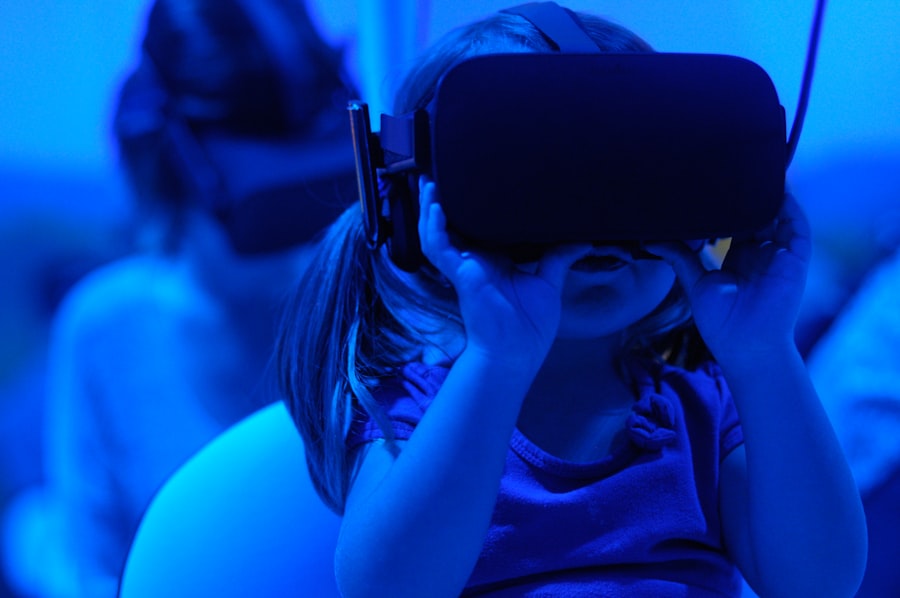In recent years, video content consumption has increased significantly across digital platforms. This trend is driven by improved internet speeds and widespread smartphone usage, leading consumers to engage more with video content. As a result, brands and businesses have increased their production and distribution of video content.
Video has become a dominant force in digital marketing, ranging from short-form videos on social media to long-form content on streaming services. Video content’s popularity stems from its ability to capture and retain audience attention more effectively than other content forms. Videos can convey complex messages in a visually compelling and emotionally resonant manner, making them effective for storytelling and brand building.
The format allows for greater creativity and flexibility, enabling brands to experiment with different approaches to engage their target audience. Consequently, video has become an integral part of marketing strategies, with brands investing heavily in video production and distribution to connect with consumers more impactfully. The rise of video-centric platforms such as YouTube, TikTok, and Instagram Reels has further fueled the popularity of video content.
These platforms offer new opportunities for brands to reach and engage their target audience through immersive and interactive video experiences. As a result, video content has become a key driver of brand awareness, engagement, and conversion in the digital space. The rise of video content has transformed brand-consumer communication, offering a powerful and versatile medium for storytelling and engagement.
The Importance of Social Commerce
The Power of Social Recommendations
The importance of social commerce lies in its ability to capitalize on the social nature of online interactions, allowing consumers to make purchase decisions based on recommendations from friends, influencers, and online communities. By leveraging social commerce features such as shoppable posts, live shopping events, and in-app checkout options, brands can create a more frictionless and personalized shopping experience for their audience.
Enhancing the Customer Experience
This not only streamlines the path to purchase but also enhances the overall customer experience, leading to higher conversion rates and increased customer satisfaction. Social commerce enables brands to tap into the vast potential of social media as a sales channel, reaching a wider audience and driving direct sales through targeted advertising and influencer partnerships.
A Fundamental Shift in Online Shopping
In conclusion, the importance of social commerce cannot be overstated, as it represents a fundamental shift in the way consumers discover and shop for products online. As a result, social commerce has become an essential component of modern e-commerce strategies, offering brands new opportunities to engage with consumers and drive revenue through social media platforms.
The Impact of Augmented Reality

Augmented reality (AR) has emerged as a transformative technology with profound implications for the digital marketing industry. By overlaying digital information onto the physical world, AR offers immersive and interactive experiences that bridge the gap between online and offline environments. This technology has revolutionized the way brands engage with consumers, offering new opportunities for product visualization, virtual try-on experiences, and interactive storytelling.
The impact of augmented reality is evident in its ability to enhance the customer experience by providing a more realistic and engaging way to interact with products and brands. From virtual fitting rooms for fashion retailers to AR-powered makeup try-on tools for beauty brands, AR enables consumers to make more informed purchase decisions by visualizing products in real-world contexts. This not only reduces uncertainty and hesitation but also fosters a deeper sense of connection and engagement with the brand.
Furthermore, augmented reality has also proven to be an effective tool for driving brand awareness and engagement through interactive AR experiences that captivate and entertain audiences. By creating shareable AR filters, games, and experiences, brands can leverage the viral nature of social media to reach new audiences and generate buzz around their products and campaigns. As a result, AR has become an integral part of innovative marketing strategies, offering brands new ways to differentiate themselves and create memorable experiences for their audience.
In conclusion, the impact of augmented reality on digital marketing is profound, as it opens up new possibilities for immersive storytelling and consumer engagement.
The Role of Influencer Marketing
Influencer marketing has become a cornerstone of modern digital marketing strategies, leveraging the influence and reach of popular personalities to promote products and services to their dedicated followers. With the rise of social media platforms such as Instagram, YouTube, and TikTok, influencers have become powerful brand advocates who can sway consumer opinions and drive purchasing decisions through authentic and relatable content. The role of influencer marketing is rooted in its ability to humanize brands and create genuine connections with consumers through trusted voices that resonate with their target audience.
By partnering with influencers who align with their brand values and target demographics, businesses can leverage their authenticity and credibility to build trust and loyalty among their followers. This not only helps brands reach new audiences but also fosters a sense of community and belonging around their products or services. Moreover, influencer marketing offers brands a more organic and non-disruptive way to reach consumers compared to traditional advertising methods.
By integrating product recommendations seamlessly into influencer-generated content, brands can leverage the influence of creators to drive awareness, consideration, and conversion without coming across as overtly promotional. As a result, influencer marketing has become an essential component of brand building and customer acquisition strategies, offering a more personalized and authentic approach to reaching consumers in an increasingly ad-saturated digital landscape. In conclusion, the role of influencer marketing in digital marketing is significant, as it represents a shift towards more authentic and relatable brand communication.
The Power of Personalization
Personalization has emerged as a key driver of consumer engagement and loyalty in the digital marketing landscape, offering brands new ways to tailor their messaging and experiences to individual preferences and behaviors. By leveraging data-driven insights and advanced targeting capabilities, brands can create more relevant and meaningful interactions with their audience, leading to higher conversion rates and customer satisfaction. The power of personalization lies in its ability to create a more tailored and seamless customer experience across various touchpoints, from personalized product recommendations to dynamic website content and targeted email campaigns.
By delivering content that resonates with individual interests and needs, brands can foster deeper connections with their audience and drive higher levels of engagement and loyalty. This not only enhances the overall customer experience but also increases the likelihood of repeat purchases and advocacy. Furthermore, personalization enables brands to optimize their marketing efforts by delivering the right message to the right person at the right time, maximizing the impact of their campaigns and driving higher return on investment.
By leveraging machine learning algorithms and predictive analytics, brands can anticipate consumer behavior and preferences to deliver hyper-targeted content that drives action. As a result, personalization has become an essential component of modern marketing strategies, offering brands new opportunities to create meaningful connections with consumers in an increasingly competitive digital landscape. In conclusion, the power of personalization in digital marketing cannot be overstated, as it represents a fundamental shift towards more relevant and impactful brand communication.
The Growing Significance of Social Listening

Real-time Feedback and Proactive Engagement
The growing significance of social listening lies in its ability to provide real-time feedback on brand perception and consumer sentiment, enabling businesses to identify opportunities for engagement or intervention before they escalate into larger issues. By monitoring conversations about their brand or industry keywords, brands can proactively address customer concerns or capitalize on positive sentiment to strengthen their reputation and relationships with their audience.
Deeper Understanding of the Target Audience
Moreover, social listening enables brands to gain a deeper understanding of their target audience by uncovering insights into their interests, behaviors, and pain points. By analyzing social media conversations and trends, brands can identify opportunities for product innovation or content creation that resonate with their audience’s needs and preferences.
Competitive Intelligence and Market Insights
Furthermore, social listening also provides brands with competitive intelligence by tracking conversations about their competitors’ products or industry trends. By analyzing competitor mentions and sentiment, brands can identify gaps in the market or areas for differentiation that can inform their own marketing strategies and positioning. This not only helps brands stay ahead of market trends but also fosters a more customer-centric approach to product development and marketing.
The Shift towards Authenticity and Transparency
Authenticity and transparency have become central themes in modern digital marketing as consumers increasingly seek genuine connections with brands that align with their values and beliefs. In an age where trust is paramount, brands are under pressure to demonstrate authenticity and transparency in their communications, actions, and relationships with consumers. The shift towards authenticity is driven by consumers’ desire for genuine connections with brands that reflect their values and beliefs.
In an era where traditional advertising is met with skepticism, consumers are drawn to brands that demonstrate authenticity through honest storytelling, ethical business practices, and genuine interactions with their audience. By showcasing their human side through behind-the-scenes content or user-generated stories, brands can build trust and loyalty among their audience by demonstrating their commitment to transparency. Moreover, authenticity is also reflected in how brands communicate their values through purpose-driven initiatives that go beyond profit-driven motives.
By aligning with social causes or sustainability efforts that resonate with their audience’s values, brands can demonstrate their commitment to making a positive impact on society while building deeper connections with consumers who share similar beliefs. This not only fosters brand loyalty but also creates a sense of community around shared values that extends beyond transactional relationships. Furthermore, transparency has become increasingly important as consumers demand greater visibility into how brands operate and deliver on their promises.
By being open about their business practices, sourcing methods, or product ingredients, brands can build trust by demonstrating accountability and integrity in their operations. This not only fosters greater confidence among consumers but also positions brands as ethical leaders in their respective industries. In conclusion, the shift towards authenticity and transparency in digital marketing reflects a broader cultural shift towards more meaningful connections between brands and consumers based on shared values and trust.
As consumers continue to prioritize authenticity in their interactions with brands, businesses must prioritize transparency in their communications while demonstrating genuine commitment to ethical practices that resonate with their audience’s values.
FAQs
What is social media marketing?
Social media marketing is the use of social media platforms to connect with your audience to build your brand, increase sales, and drive website traffic. This involves publishing great content on your social media profiles, listening to and engaging with your followers, analyzing your results, and running social media advertisements.
What are some future trends to watch in social media marketing?
Some future trends to watch in social media marketing include the rise of augmented reality (AR) and virtual reality (VR) content, the increasing importance of social commerce, the use of chatbots for customer service, the growth of video content, and the continued dominance of influencer marketing.
How can businesses stay ahead in social media marketing?
Businesses can stay ahead in social media marketing by staying updated on the latest trends and technologies, understanding their target audience and creating content that resonates with them, engaging with their followers and building a community, and leveraging data and analytics to make informed decisions. It’s also important to be adaptable and willing to experiment with new strategies and platforms.















